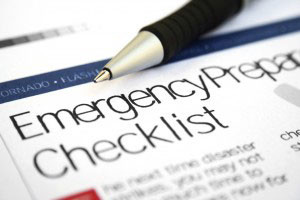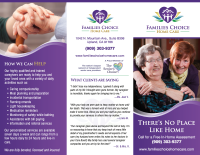It is important to remind every family about disaster preparedness for seniors and to put plans in place. By evaluating your own personal needs and making an emergency plan, you can be better prepared for any situation. Seniors have certain specific issues to consider.
- Consider how a disaster might affect your individual needs.
- Identify all resources you use on a daily basis and what you might do if they are limited or not available.
- Get an emergency supply kit.
- Identify the shelter nearest to your home.
- Plan in advance for shelter alternatives that will work for you (and your pets); consider loved ones or friends outside of your immediate area who would be willing to host you in an emergency.
- Consider electronic payments for federal benefit recipients. Keep in mind a disaster can disrupt mail service for days or even weeks. For those who depend on the mail for their Social Security benefits, a difficult situation can become worse if they are evacuated or lose their mail service. Switching to electronic payments is one simple, significant way people can protect themselves financially before disaster strikes
Create a Support Network
- If you anticipate needing assistance during a disaster talk to family, friends and others who will be part of your personal support network.
- Write down and share each aspect of your emergency plan with everyone in your support network.
- Make sure everyone knows how you plan to evacuate your home or workplace and where you will go in case of a disaster.
- Make sure that someone in your local network has an extra key to your home and knows where you keep your emergency supplies.
- Teach those who will help you how to use any lifesaving equipment, administer medicine in case of an emergency.
- Practice your plan with those who have agreed to be part of your network.
Additional Supplies and Documents:
Medications and Medical Supplies
If you take medicine or use a medical treatment on a daily basis, be sure you have what you need to make it on your own for at least a week, maybe longer.
- Make a list of prescription medicines including dosage, treatment and allergy information.
- Talk to your pharmacist or doctor about what else you need to prepare.
- If you undergo routine treatments administered by a clinic or hospital or if you receive regular services such as home health care, treatment or transportation, talk to your service provider about their emergency plans. Work with them to identify back-up service providers and incorporate them into your personal support network.
- Consider other personal needs such as eyeglasses, hearing aids and hearing aid batteries, wheelchair batteries, and oxygen.
Emergency Documents
Include copies of important documents in your emergency supply kits such as family records, medical records, wills, deeds, social security number, charge and bank accounts information and tax records.
- Have copies of your medical insurance and Medicare cards readily available.
- Keep a list of the style and serial number of medical devices or other life-sustaining devices. Include operating information and instructions.
- Make sure that a friend or family member has copies of these documents.
- Include the names and contact information of your support network, as well as your medical providers.
- If you have a communication disability, make sure your emergency information notes the best way to communicate with you.
- Keep these documents in a water proof container for quick and easy access.
http://www.ready.gov/america/getakit/seniors.html

Emergency Checklist





